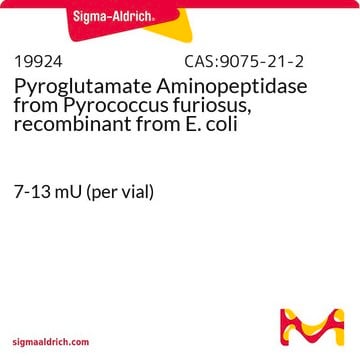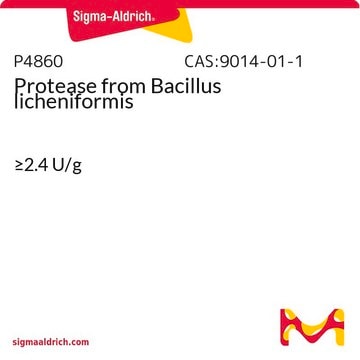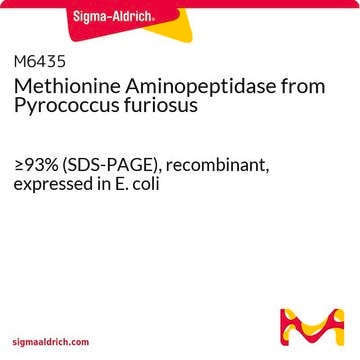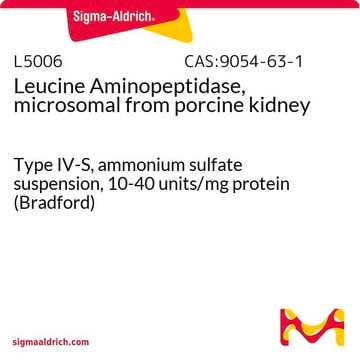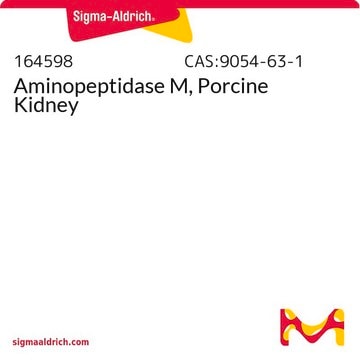P6236
Pyroglutamate Aminopeptidase from Pyrococcus furiosus
recombinant, expressed in E. coli, ~90% (SDS-PAGE), ≥5.0 units/mg protein
Sinónimos:
L-Pyrrolidone carboxyl peptidase
About This Item
Productos recomendados
recombinante
expressed in E. coli
Nivel de calidad
Análisis
~90% (SDS-PAGE)
formulario
lyophilized powder
actividad específica
≥5.0 units/mg protein
mol peso
24.072 kDa by amino acid sequence
28 kDa by SDS-PAGE
Condiciones de envío
dry ice
temp. de almacenamiento
−20°C
Categorías relacionadas
Descripción general
Aplicación
Acciones bioquímicas o fisiológicas
Definición de unidad
Forma física
Nota de preparación
Palabra de señalización
Danger
Frases de peligro
Consejos de prudencia
Clasificaciones de peligro
Eye Irrit. 2 - Resp. Sens. 1 - Skin Irrit. 2 - STOT SE 3
Órganos de actuación
Respiratory system
Código de clase de almacenamiento
11 - Combustible Solids
Clase de riesgo para el agua (WGK)
WGK 3
Punto de inflamabilidad (°F)
Not applicable
Punto de inflamabilidad (°C)
Not applicable
Equipo de protección personal
Eyeshields, Gloves, type N95 (US)
Certificados de análisis (COA)
Busque Certificados de análisis (COA) introduciendo el número de lote del producto. Los números de lote se encuentran en la etiqueta del producto después de las palabras «Lot» o «Batch»
¿Ya tiene este producto?
Encuentre la documentación para los productos que ha comprado recientemente en la Biblioteca de documentos.
Los clientes también vieron
Nuestro equipo de científicos tiene experiencia en todas las áreas de investigación: Ciencias de la vida, Ciencia de los materiales, Síntesis química, Cromatografía, Analítica y muchas otras.
Póngase en contacto con el Servicio técnico